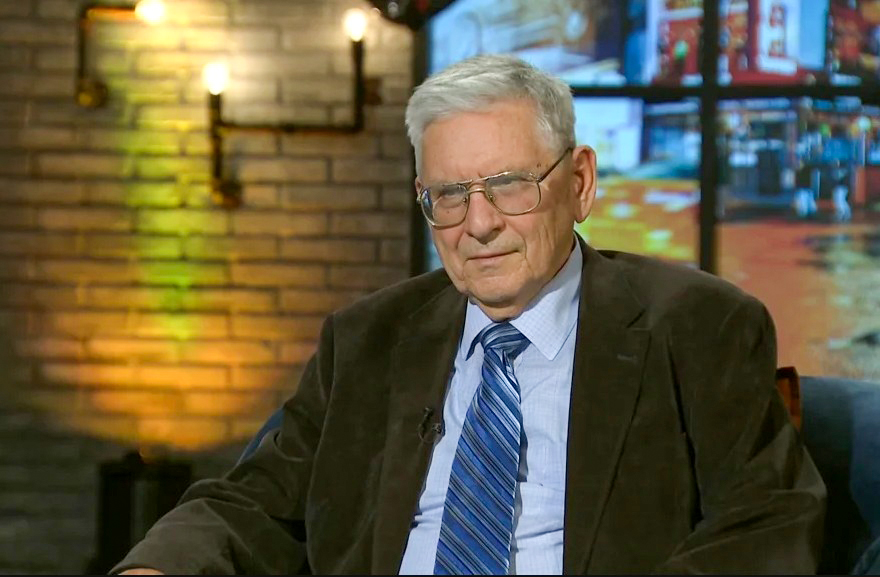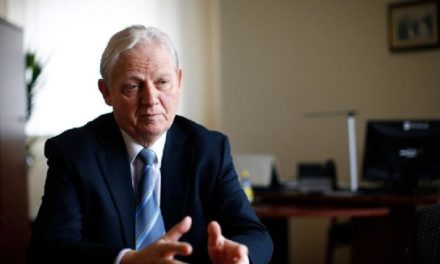In the last four quarters, the country's balance of payments showed a deficit of 13 billion euros in total, and if this continues, the country will inevitably become indebted to foreign countries again, which basically limits the country's internal and external room for maneuver and prevents its development for a long time, as it also happened during past indebtedness. The deterioration of the balance of payments is only partially caused by the epidemic and sanctions related to the Russian-Ukrainian war, as the deterioration started much earlier, already in 2017.
The balance of payments, which indicates the external balance of the country, consists of three main items, these are the balance of trade in goods, the balance of services (e.g. tourism) and the balance of income payments (capital income, interest). The most important of these is trade in goods, whose balance between 2016 and 2019 (when there was no covid and war) worsened by 7.6 billion euros, while the balance of services improved somewhat, and that of income payments barely changed.
The deterioration of the foreign trade balance is largely a consequence of the increase in the deficit in the relationship between China and the Republic of Korea, because European exports improved overall, but this improvement did not compensate for the deterioration in the relationship between China and Korea. The significant import surplus from China and Korea can be linked to the activities of multinational companies established in our country, whose export activity did not increase to the same extent as their import. 80 percent of our foreign trade is handled by the multinational companies established here, which means that our external balance depends to a significant extent on their decisions. It is particularly worth drawing attention to the electricity industry, whose production value has been decreasing since 2000, mainly because its development has fallen behind, and the country is largely a net importer, which - in addition to the uncertainty of import opportunities - significantly worsens the balance of payments. The dynamic growth of internal use (consumption, accumulation) also contributed to the development of the imbalance. Investments increased by 40 percent between 2016 and 2019, which corresponds to an annual growth rate of 13 percent, and this is far above the equilibrium growth path.
Obviously, it would be difficult to separate the deterioration of the external balance into the part of domestic responsibility, that which is due to international companies and the change in the external environment, but this separation should be done for the sake of appropriate response measures. As for the domestic part, indebtedness towards foreign countries in Hungary is not a modern problem, but a centuries-old one.
The country, which became independent after World War I, inherited huge debts from the time of the Monarchy, which were further increased by the reparation obligations imposed on Hungary and the world crisis of 1929–1932. As a result, the balance of payments deteriorated gradually and significantly. In 1931, Hungary was forced to introduce pegged foreign exchange management (the termination of the free convertibility of the Hungarian currency), which then remained in place for roughly seventy years, until 2001.
The capital foreign trade balance continuously caused problems in the 1950s and 1960s. At the meeting of the Political Committee of the MSZMP on June 11, 1963, for example, János Kádár reacted to the problems that had become topical again: "For our entire balance of payments, I would say that approx. We have been repairing it for 6 and a half years... If we cannot change the basic fact that our imports from the West are always greater than our exports, then this will increase in geometric proportions until state bankruptcy occurs."
As a result of the Arab-Israeli war that broke out in 1973, a deficit of 800 million dollars developed in our country's foreign trade balance. What should have been done then was to reduce the planned economic growth of 5-6 percent to 3-4 percent, so that the import demand of the growth could be covered by the country's export capacity. But the political leadership was afraid to face the problem, and liberal economists encouraged borrowing (today's historians blame the debt on János Fekete, even though he did not take the lead). Later, in 1979, in order to avoid state bankruptcy, the necessary restrictions were already made, but it was too late, in spite of the fact that the foreign trade balance became positive, due to the increased interest rates, we fell into a debt trap. It would be good to avoid this now.
The main reason for the repeated indebtedness – in addition to historical traumas – is partly that the political leaders repeatedly want to squeeze more economic growth out of the country than the country is capable of while fulfilling the equilibrium conditions. Back in the 1960s, it was suggested that an economic structure suitable for capital exports should be created, but this was never realized mainly due to the liberal economists' understanding of economic management. Because their opinion was always (even today) that it is impossible to know what needs to be developed, the market will tell you. Since the economic mechanism reform of 1968, economic policy has essentially been dominated by neoliberal economists, who believe that it is enough to keep the public budget deficit and inflation low, and the rest will take care of itself.
How a country should catch up is a bone of contention in economic history. It was already written by Friedrich List in 1841 (The National System of Political Economy), but even he was two hundred years late compared to the English shipping law. Kossuth, who was originally liberal like Széchenyi, organized the Defense Society under the influence of List's work. But you don't have to dive into the fog of centuries, you have to look, for example, at how poor, agricultural South Korea became an industrial superpower. So that the state, family companies (small businesses) and banks came together and implemented the industrialization policy prescribed by the state. This is how the steel factory was built on the site of the swamp, and how Samsung, Daewoo, LG Group, Kia motors and the rest came to be. It is true that at the beginning the population added up what was gold, and the country bought itself out of debt with this. So they didn't announce discount loan programs so that anyone can apply, but specific tasks were set. By the way, we also had such programs back then, and in many cases they were quite successful (for example, the introduction of road vehicle development, petrochemicals, the IT Central Development Program, or the introduction of production systems in agriculture), the results of which were then completely destroyed by the liberalization and privatization of the regime change, a hundred-year-old eliminating industries along with the entire research network behind them. Well, it's nice to win from here. It hasn't worked so far. After Trianon, when the country lost two-thirds of its territory, the majority of its raw material sources, and a significant part of its industry, fifteen years later we already had a competitive industry. Examples include the locomotive of the Ganz factory, the crypto-burner of the United Incandescent, the Kandó locomotive, the Chinoin, the pharmaceutical products of Gedeon Richter, and now more than thirty years have passed after the change of regime, our own industry is almost non-existent, and we are once again heavily in debt. we face.
At least we would be self-sufficient in agricultural and food industry products, meaning that we process the agricultural products ourselves and deliver them to consumers, as is the case in all normal countries. There was already such a thing, the Ant, which the communists managed to liquidate, but were not able to restore after the regime change. In many areas, vertical cooperatives would be the ones with which the stupid EU obligations could be avoided.
We should learn from our own past and the practice of countries that have successfully caught up, perhaps it is not too late.
Author: Károly Lóránt, economist, advisor to the National Forum, member of the C12 expert group
Source: Magyar Hírlap
Photo: PS TV












